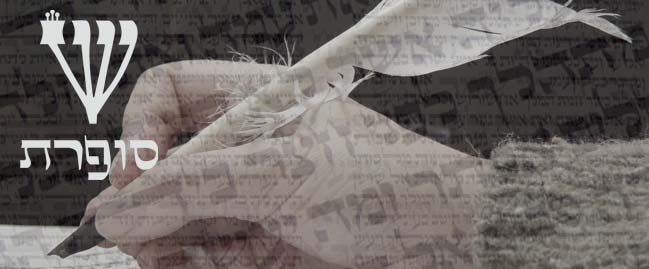MEGILLAT ESTHER LEARNING
בס"ד
24 Elul
Qeset HaSofer 28 - se'if Dalet, note Hey: (Ve-yeysh makhshirin/there are some who accept as kosher) - & with M"E in a time of emergency, you have to rely on the Makhshirin [those who say it's kosher]. The Pri Megadim ruled that it requires study/deliberation/consideration whether you say a blessing over it [so you can use it, but not say a blessing]. & here I saw in sefer otot chayim he enumerated which parshiyot are the closed ones & which are the open ones: [list of open ones follows]. So here even though we act/retreat with all of them as closed, in any case it seems that with these if we find at their end or if we find all of them are open, you can still read it with blessings (but this is only in an emergency).
Se'if Hey: the 10 sons of Haman we treat this as our custom in our states/provinces to write them on a special column...at the beginning of the first column "ish" ["man"] at the beginning of the line & "et" [definite article] at the end of the line with a blank space in between. On the next line Parshandata at the beginning [blahblahblah & so on]. on the last line with the Vav of Vayezata must be erect with the head slightly bent diagonally & tall...& there are those who say you lengthen this in the reading.
note Vav in Lishkat HaSofer- the genius, our teacher, A"V"V, of blessed memory, this great genius in his explanation wrote that this is an error/mistake/blunder, but the main thing is that there should be the word ISH at the beginning at the row & the ET at the end of the row. & in thruth the one who looks into the marginal annotations sefer mem'gimel, mitzvah gadol will see that yes, this is the intent.
...& in the book sfer adam in the section nishmat ha'adam to all due respect to all those who do otherwise freely/needlessly lengthen the words to bring out the words from their pashut (simple, literal meaning)...














0 Comments:
Post a Comment
<< Home